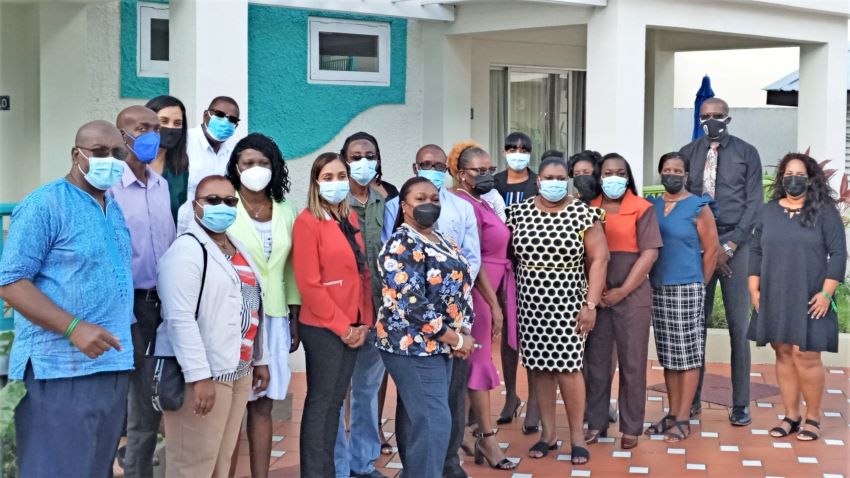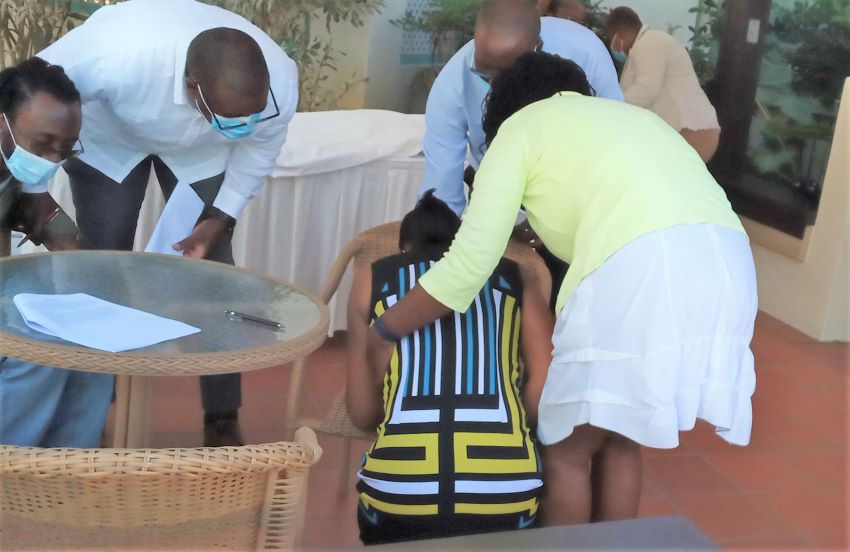
Seventeen health care workers from eight Caribbean countries, including Barbados, are now better equipped to deal with the mental health needs of others, as well as their own.
They recently benefitted from a Disaster-related Psychological Trauma and Mental Health Training for Nurses in the Caribbean Training of Trainers’ Programme heldat the Blue Horizon Hotel, Rockley, Christ Church, from February 21 to 24.
It was coordinated by the University of the West Indies, School of Nursing, St. Augustine Campus, and was Phase Two of a larger three-year project being sponsored by Johnson & Johnson to the tune of US $300,000. The programme seeks to strengthen and support Caribbean health workers in their response to disasters and health emergencies.
Representatives from Anguilla, Bahamas, Barbados, Bermuda, Cayman Islands, St. Vincent and the Grenadines, St. Kitts and Nevis, and the Turks and Caicos Islands participated in the programme.
It aims to strengthen the capacity of nurses to deliver psychological trauma and mental health services to affected individuals, while also maintaining the mental health wellbeing and resilience of themselves and their colleagues.
Some of the core areas addressed over the four days were: Key terms and concepts in disaster preparedness and response; effective communication; needs assessment in the disaster setting; developing and evaluating action plans; psychological preparedness; peer-care and self-care, and organisational interventions.
Participant, Alfred Alleyne, a nurse from Barbados, said the workshop had increased his knowledge-base on mental health needs and psychological trauma following disasters, and the importance of taking care of his own mental health.
“They teach you what to look for and how you have to recognise your limitations by not putting yourself in a position where you are going to help someone and then, in turn, you need help. After the workshop, we are supposed to go back and teach our own colleagues how to deal with such situations. Persons always think health care workers will always be able to go and go without stopping. They don’t realise we also suffer our own types of trauma,” Mr. Alleyne said.
He added: “I found the workshop very engaging. I especially liked hearing from persons from the other islands. When you hear what they go through, you ask yourself what are we here in Barbados complaining about?

Their issues are so much more widespread than ours. We’ve also learned from them; what they do that we could put into practice here so it was a good exchange of information and we got a good picture of how mental health care is executed in the other islands.”
Mental Health Nurse from the Bahamas, Patrice Forde-Hall, also shared her views after attending the workshop.
“The workshop was a timely one. Having gone through a major hurricane in the Bahamas in 2019, I was able to marry a lot of things and identified with a lot of things we were presented with. It taught me how to assist those who may be in distress. I hope to share that information with key stakeholders in the Bahamas.
“It also examined self-care. We are so involved with our duties but we need to have downtime for ourselves, so we can regroup and provide care in a better and more competent way. It gave me a clearer picture on how to be more prepared for future disasters. I now see a need to approach our government officials on the importance of mental health, especially post disaster. We need to be more mental health focused and recognise the early signs of the deterioration of a person’s mental health, and intervene,” she stated.
It is expected that the project will create a pool of well-qualified nurses within the Caribbean with the requisite competencies to respond to psychological trauma, and develop an educational approach that encourages “inter-professional” learning for collaborative practice in addressing mental health.
